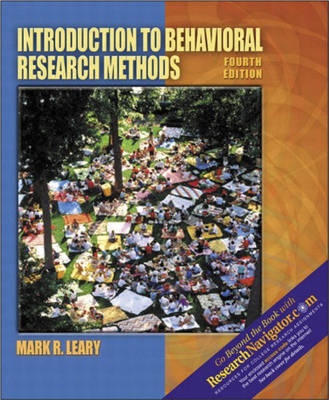Starting with the premise that all behavioral research is an effort to understand behavioral variability (variability in behavior across situations, among individuals, and over time), Introduction to Behavioral Research Methods shows readers how to conceptualize questions, measure variables, design studies, and analyze data in order to understand variability in behavior, thought, and emotion. After chapters that introduce behavioral science, the central role of variability in the research process, and measurement, the text deals with the four basic approaches to behavioral research: descriptive research, correlational research, experimental research, and quasi-experimental research.
Although the focus is on research design, elementary statistical analyses (such as correlation, t-tests, and ANOVA) are introduced so that students understand statistics well enough to read research articles and to comprehend the implications of research design for the quality of the data that are collected. Chapters on research ethics and scientific writing (including the most recent version of APA style) round out the book. Throughout each chapter, boxes on “Developing Your Research Skills” and “Behavioral Research Case Study” provide practical examples and pique student interest.
Feedback from instructors and students who have used previous editions of the text attest to its comprehensive coverage of research methods, its readability and student-friendly approach, and the pedagogical usefulness of the integrating theme of behavioral variability.
- ISBN10 0205396763
- ISBN13 9780205396764
- Publish Date 27 August 2003
- Publish Status Out of Print
- Out of Print 14 June 2010
- Publish Country US
- Imprint Pearson
- Edition 4th edition
- Format Hardcover
- Pages 480
- Language English
